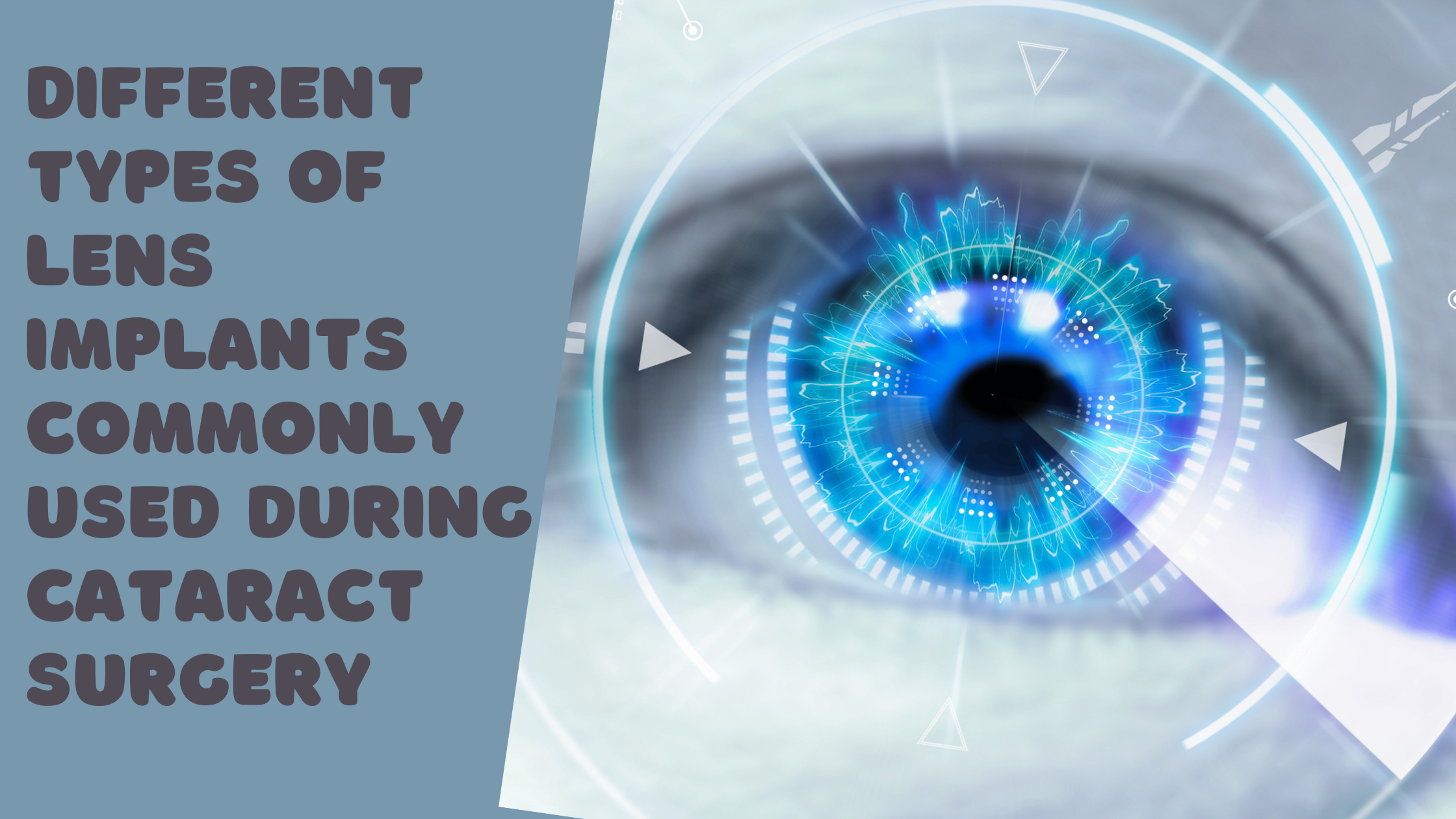Different types of lens implants commonly used during cataract surgery
Are you about to undergo a Cataract surgery? You must be getting your pre-requisites ready and mentally gearing up for this surgical process.
But wait!
Did you ask about the types of lens implants or intraocular lenses/IOL’s for cataract surgery?
Although your surgeon will be better able to tell you about the best lens/IOL for your cataract procedure, here’s what you should know about artificial cataract lenses beforehand.
Types of Lens Implants for Cataract surgery / IOL Types
Type of Cataract Lens | Function | Purpose |
| Monofocal Lens | This is the most commonly used standard lens in cataract surgery. These lenses allow you to see objects clearly, but your vision is restricted to a specific distance. For example, if you have chosen a lens for far vision, you will need spectacles to see close objects. The best option is to select lenses that will allow you to work for the majority of the day. You can use distant vision lenses if you work in a job that requires good distance vision, such as driving. The same is true for intermediate and short-distance lenses. | Clears Distance Vision. Glasses required for near vision |
| Multifocal Lens | Multifocal Lens is one of the best lenses for eyes as it provides near and far vision, obviating the need for glasses. However, talk to your doctor about some of the disadvantages of multifocal lenses, like reduced contrast sensitivity and occasional glare in few patients | For people who do not wear glasses and don’t even want them in the future. Dependence on glasses in reduced maximally |
| Toric Lens | There are two types of power in your eyes – The spherical and cylindrical power. The spherical power is determined by the natural lens, while the cylindrical power is determined by the corneal curvature or abnormal shape of the crystalline lens or the eyeball The spherical power is corrected by Monofocal and Multifocal lenses. However, to correct a cylindrical power, a patient needs to continue the usage of glasses forever. Toric lenses can be both monofocal and multifocal. So a wide range is available to the patient to choose lenses. But the good news is – with the Toric lenses, your ophthalmic surgeon can correct both cylindrical and spherical problems in the eye. | Mostly recommended for Astigmatism or pre-existing cylindrical vision problems. |
| Monovision Correction | During this procedure, the doctor places different-vision lenses in each eye. In one eye, the doctor implants a far-vision lens, while in the other, the doctor implants a near-vision lens. | When both the visions for far and near distances need to be corrected. So when both eyes are open the patient gets good sight for both distant. |
| Accommodative Lens | Accommodative lenses can correct vision over a wide range of distances. This lens can efficiently change the focus by using natural muscle movements of the eye | When refractive errors need to be corrected while viewing distant objects. |
How do I finalize the best IOL or Lens Implant for my Cataract surgery?

What kind of lens is best for you? – This is entirely dependent on your requirements.
- A monofocal lens may be the best option if you’re comfortable wearing glasses for near work after cataract surgery.
- A toric lens may be appropriate if you want to avoid wearing distance glasses after cataract surgery and have astigmatism. Toric lens can be both monofocal or multifocal.
- If you want to quit wearing distance and reading glasses after cataract surgery, a presbyopia-correcting lens may be the best option. These are multifocal implants
Remember that it will ultimately depend on what you want to achieve to better your vision.
Cataract surgery combined with lens replacement can transform your life. Thus, the entire process of going through the surgery and choosing the best lens for cataract surgery may raise several questions in your mind. Your doctor is the best person to answer your questions Try to keep track of everything you do throughout the day, including how often you have to change your glasses. This will help you analyse the daily activities that are bothering you, so you’ll have plenty of information to share with your doctor when you meet him.
Read More about Cataract Surgery – CATARACT: SIGNS, SYMPTOMS, CAUSES AND TREATMENT
At Krishna Eye Centre, we thoroughly understand your concern and anxiety before cataract surgery. If there are queries that keep popping up in your mind, and you are looking for someone who may help you with valid answers, our dedicated team is right here for you! So book an appointment for an empathetic, caring, and highly professional consultation.
_________________________________________________
